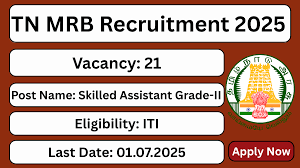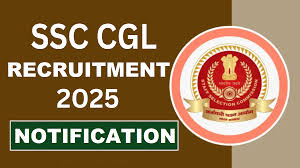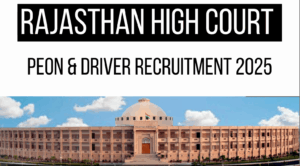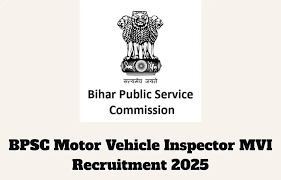- All States Jobs
- Haryana Govt. Jobs
- Punjab Govt. Jobs
- Uttar Pradesh Govt. Jobs
- Rajasthan Govt. Jobs
- Bihar Govt. Jobs
- Himachal Pradesh Govt. Jobs
- Uttarakhand Govt. Jobs
- Gujarat Govt. Jobs
- Madhya Pradesh Govt. Jobs
- Maharashtra Govt. Jobs
- Assam Govt. Jobs
- Andhra Pradesh Govt. Jobs
- Arunachal Pradesh Govt. Jobs
- Telangana Govt. Jobs
- Chhattisgarh Govt. Jobs
- Goa Govt. Jobs
- Tamil Nadu Govt. Jobs
- Nagaland Govt. Jobs
- Odisha Govt. Jobs
- Mizoram Govt. Jobs
- Meghalaya Govt. Jobs
- Kerala Govt. Jobs
- Jharkhand Govt. Jobs
- Manipur Govt. Jobs
- Karnataka Govt. Jobs
- Sikkim Govt. Jobs
- Tripura Govt. Jobs
- West Bengal Govt. Jobs
All Updates (26.6.2025)
| Sr. No | Job Name | Notification Date | Opening Date | Closing Date | Photo | Detail |
|---|---|---|---|---|---|---|
| 1 | SSC MTS, Havaldar Recruitment 2025 | 26.6.2025 | 26.6.2025 | 24.7.2025 |

|
Get Details |
All Updates (24.6.2025)
| Sr. No | Job Name | Notification Date | Opening Date | Closing Date | Photo | Detail |
|---|---|---|---|---|---|---|
| 2 | SBI PO Recruitment 2025 | 24.6.2025 | 24.6.2025 | 14.7.2025 |

|
Get Details |
All Updates (13.6.2025)
| Sr. No | Job Name | Notification Date | Opening Date | Closing Date | Photo | Detail |
|---|---|---|---|---|---|---|
| 3 | Goa PSC Clinical Psychologist & Other Recruitment 2025 | 13.6.2025 | 13.6.2025 | 27.6.2025 |

|
Get Details |
| 4 | WBMSC Sub-Assistant Engineer Recruitment 2025 | 13.6.2025 | 13.6.2025 | 8.7.2025 |

|
Get Details |
| 5 | NCRTC Executive Recruitment 2025 | 13.6.2025 | 13.6.2025 | 13.7.2025 |

|
Get Details |
All Updates (12.6.2025)
| Sr. No | Job Name | Notification Date | Opening Date | Closing Date | Photo | Detail |
|---|---|---|---|---|---|---|
| 6 | Meghalaya PSC Assistant Employment Officer Recruitment 2025 | 12.6.2025 | 12.6.2025 | 12.7.2025 |

|
Get Details |
All Updates (11.6.2025)
| Sr. No | Job Name | Notification Date | Opening Date | Closing Date | Photo | Detail |
|---|---|---|---|---|---|---|
| 7 | NICL AO Recruitment 2025 | 11.6.2025 | 12.6.2025 | 3.7.2025 |

|
Get Details |
| 8 | ICG Navik & Yantrik 01 & 02/2026 Recruitment 2025 | 11.6.2025 | 11.6.2025 | 25.6.2025 |

|
Get Details |
| 9 | JSSC Secondary Teacher Recruitment 2025 | 11.6.2025 | 18.6.2025 | 17.7.2025 |

|
Get Details |
| 10 | TN MRB Skilled Assistant Grade II Recruitment 2025 | 11.6.2025 | 11.6.2025 | 1.7.2025 |

|
Get Details |
All Updates (10.6.2025)
| Sr. No | Job Name | Notification Date | Opening Date | Closing Date | Photo | Detail |
|---|---|---|---|---|---|---|
| 11 | GSSSB Sub Fire Officer Recruitment 2025 | 10.6.2025 | 11.6.2025 | 25.6.2025 |

|
Get Details |
| 12 | GSSSB Wireman Recruitment 2025 | 10.6.2025 | 11.6.2025 | 25.6.2025 |

|
Get Details |
All Updates (9.6.2025)
| Sr. No | Job Name | Notification Date | Opening Date | Closing Date | Photo | Detail |
|---|---|---|---|---|---|---|
| 13 | Rajasthan High Court Peon Recruitment 2025 | 9.6.2025 | 26.6.2025 | 26.7.2025 |

|
Get Details |
| 14 | SSC CGL Recruitment 2025 | 9.6.2025 | 9.6.2025 | 4.7.2025 |

|
Get Details |
| 15 | Rajasthan High Court Driver Recruitment 2025 | 9.6.2025 | 18.6.2025 | 7.7.2025 |

|
Get Details |
| 16 | JKSSB Naib Tehsildar Recruitment 2025 | 9.6.2025 | 16.6.2025 | 15.7.2025 |

|
Get Details |
| 17 | BPSC Motor Vehicle Inspector Recruitment 2025 | 9.6.2025 | 10.6.2025 | 3.7.2025 |

|
Get Details |
| 18 | BPSC Vice Principal ITI Recruitment 2025 | 9.6.2025 | 10.6.2025 | 3.7.2025 |

|
Get Details |
| 19 | CG Vyapam Lab Attendant Recruitment 2025 | 9.6.2025 | 9.6.2025 | 30.6.2025 |

|
Get Details |
All Updates (7.6.2025)
| Sr. No | Job Name | Notification Date | Opening Date | Closing Date | Photo | Detail |
|---|---|---|---|---|---|---|
| 20 | GSSSB Laboratory Technician Recruitment 2025 | 7.6.2025 | 10.6.2025 | 17.6.2025 |

|
Get Details |

